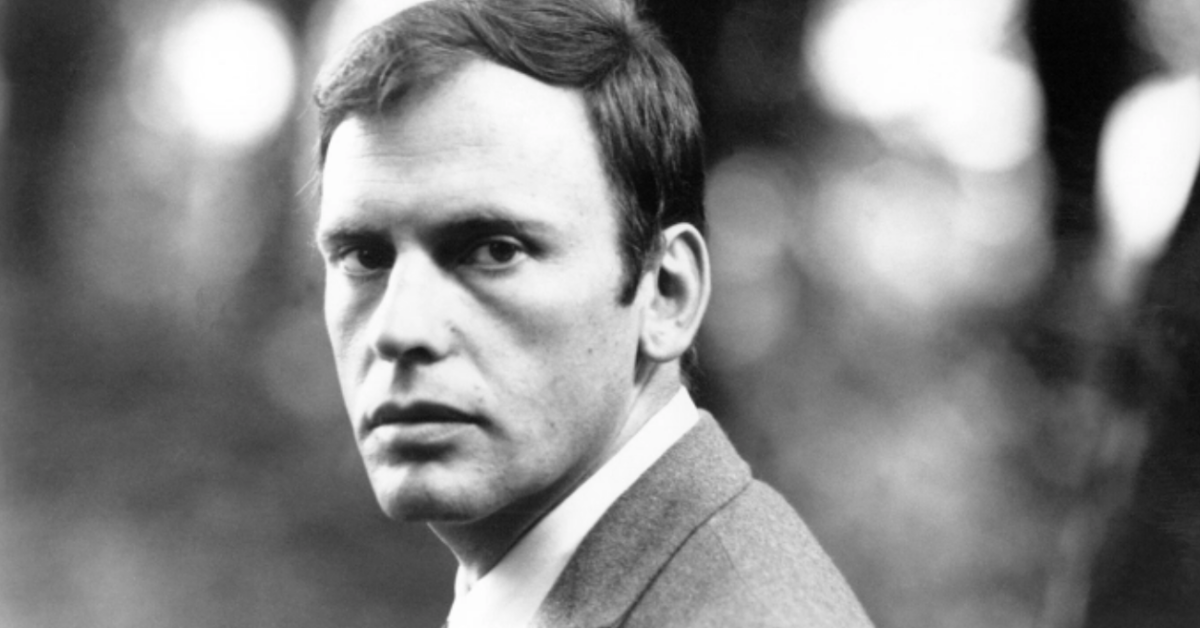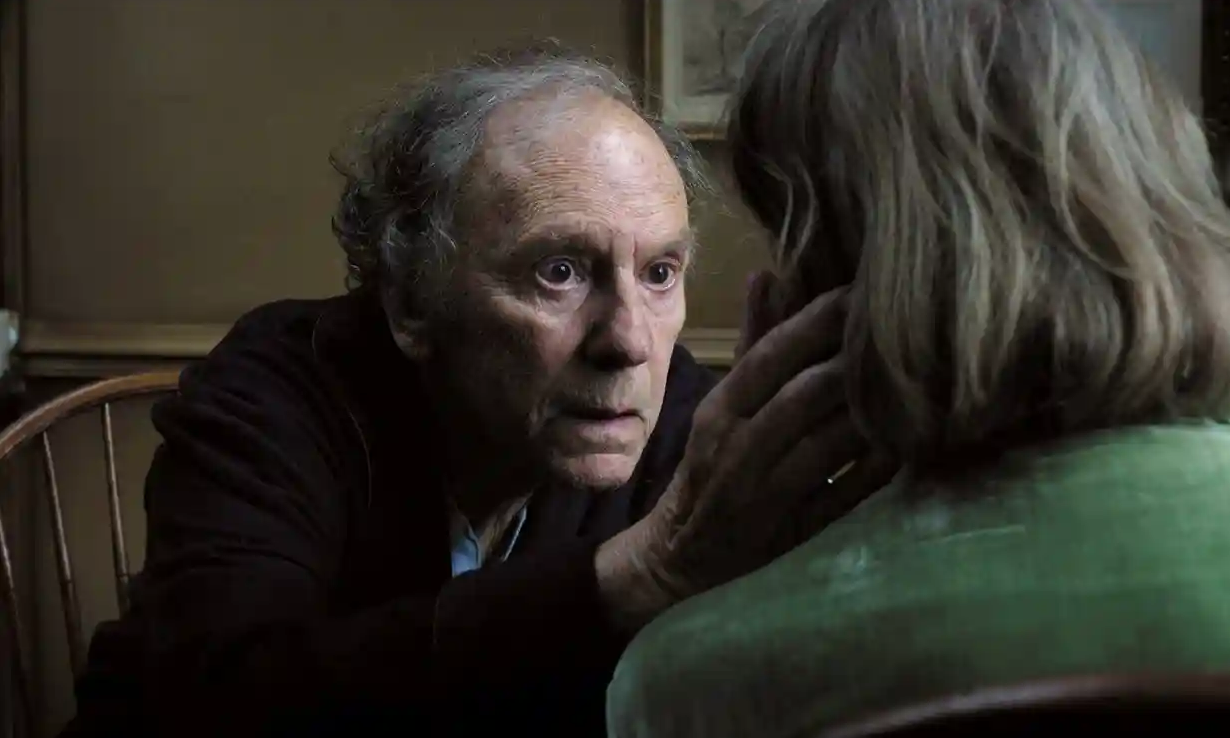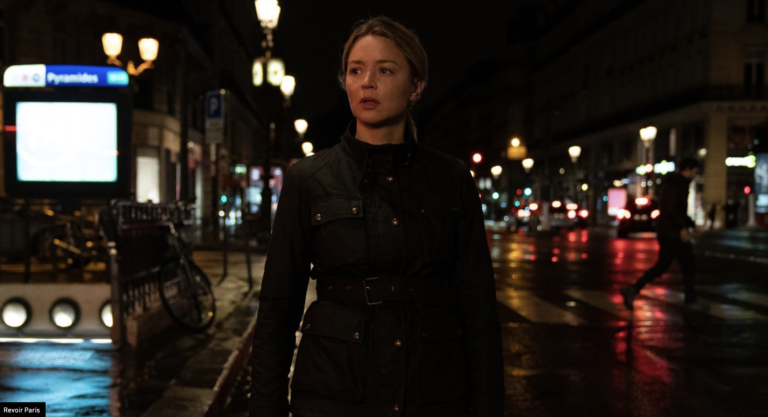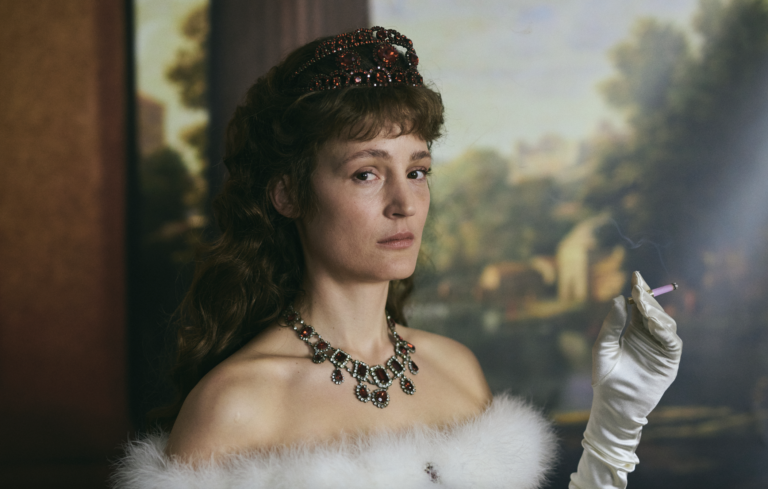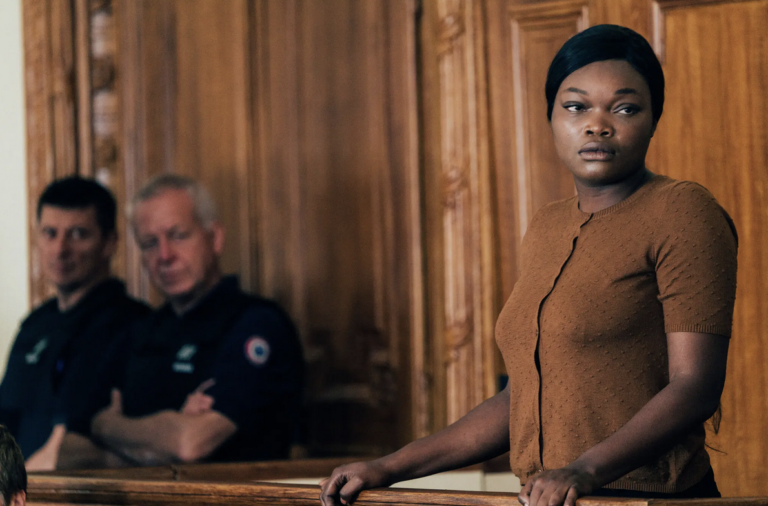The world-renowned actor Jean-Louis Trintignant, known for such films as A Man and a Woman, The Conformist and Amour, died last Friday, June 17. He was 91.
Born in Piolenc and raised in nearby Pont-Saint-Esprit and Aix-en-Provence, Trintignant dropped out of law school to become an actor in 1951. After some success on the Parisian stage, playing such challenging roles as Hamlet, he shot to fame in 1956 playing Brigitte Bardot’s cuckolded husband in Roger Vadim’s And God Created Women—and by having an off-screen affair with his co-star that broke up both their marriages, Bardot’s to Vadim and Trintignant’s to actress Stéphane Audran.
Starring roles followed in Claude Lelouche’s A Man and a Woman (1966), opposite Anouk Aimée, Costa-Gavras’ political thriller Z (1969), and Eric Rohmer’s heady, romantic My Night at Maud’s (1969). Internationally, Trintignant might be best known for his performance as a sexually-conflicted fascist in Bernardo Bertolucci’s masterpiece, The Conformist (1970). On its heels, the actor turned down roles in Francis Ford Coppola’s Apocalypse Now, Steven Spielberg’s Close Encounters of the Third Kind, and Bertolucci’s Last Tango in Paris, opting, it seemed, for lighter French and Italian fare. Notable roles in the 1980s and 90s include those in André Techiné’s Rendez-vous (1985), opposite Juliette Binoche, Krzysztof Kieślowski’s haunting Three Colors: Red (1994), and Patrice Chéreau’s Those Who Love Me Can Take the Train (1998).
In 2003, Trintignant fell into a depression after his daughter from his second marriage, the actress Marie Trintignant, was killed by her boyfriend, the French singer Bertrand Cantat. The actor emerged from his darkness in 2012 to play an elderly man caring for his ailing wife in Michael Haneke’s Palme d’Or and Oscar-winning Amour. Trintignant returned to the screen once more in Claude Lelouch’s The Best Years of a Life (2019), his sequel to A Man and a Woman, which integrates footage of the earlier film to reflect the memories of an old man dreaming of the love story that long ago saved him from despair.
Here are some career highlights to stream in honor of the actor who appeared in more than 130 films over a career spanning seven decades.
A Man and a Woman, Claude Lelouch (1966),
Trintignant stars as Jean-Louis, a race-car driver reeling from his wife’s death, who tentatively begins a romance with Anne (Anouk Aimée), a mother at his son’s school, who has also lost her husband. The beautifully gauzy and nostalgic cinematography and famously catchy theme by Francis Lai helped propel the film to garner a slew of awards, including the Palme d’Or at Cannes and Oscars for both best foreign language film and best story and screenplay. An amateur race car driver himself, Trintignant did his own onscreen racing.
Z, Costa-Gavras (1969)
The political thriller by Greek expatriate director Costa-Gavras was based loosely on the 1963 assassination of a Greek left-wing activist. The film stars Yves Montand as a politician whose murder is covered up and Trintignant as the magistrate brought in to investigate, stopping at nothing to unearth the truth. The action-packed film was universally lauded upon its release and went on to win an Academy Award for best foreign language film. Trintignant won a jury prize at Cannes for best actor.
My Night at Maud’s, Éric Rohmer (1969)
The third in the New Wave director’s renowned series of Six Moral Tales tells the story of Jean-Louis, an engineer in Clermont-Ferrand who spots a woman at church and becomes instantly convinced she will be his wife. Afterwards, an old friend invites him to the home of Maud (Françoise Fabian), a beautiful divorcée. When it begins to snow, Maud invites Jean-Louis to spend the night, throwing the poor guy into a crisis of indecision and self-doubt. The lusty young man in him wants to sleep with her, but his Catholic self, who’s already found his ideal bride, resists. Maud is coy, seductive and hurt by his restraint. The profound philosophical debate that fills the film’s frames are typical of Rohmer’s beloved oeuvre.
The Conformist, Bernardo Bertolucci (1970)
Based on the novel by Alberto Moravia, this visually dazzling and ethically fascinating film stars Trintignant as Marcello Clerici, a fascist assassin hired to kill his former mentor. Bertolucci and his cinematographer, Vittorio Storaro, together created a visual masterpiece that explores the troubled present and past of a man lacking real will or moral compass of his own, instead craving conformity, believing he can achieve happiness through conventionality.
Three Colors: Red, Krzysztof Kieslowski, (1994)
The final installment of the Polish director’s astonishing trilogy (preceded by Blue and White) explores human connection through the story of Valentine (Irène Jacob), a student and model who crosses paths with an aging judge, played by Trintignant, when she accidentally hits his dog with her car. Time Out London critic Geoff Andrew, wrote: “While Kieślowski dips into various interconnecting lives, the central drama is the electrifying encounter between Valentine—caring, troubled—and the judge, whose tendency to play God fails to match, initially, the girl’s compassion. It’s a film about destiny and chance, solitude and communication, cynicism and faith, doubt and desire; about lives affected by forces beyond rationalization… Stunningly beautiful, powerfully scored and immaculately performed, the film is virtually flawless, and one of the very greatest cinematic achievements of the last few decades. A masterpiece.” According to Wikipedia, Red is one of only two films with a perfect score on Rotten Tomatoes, the other being Ingmar Bergman’s Fanny and Alexander.
Amour, Michael Haneke (2012)
When Anne (Emmanuelle Riva), a musician and teacher, suffers a stroke that leaves her partially paralyzed, her husband Georges (Trintignant) promises to care for her. After a second stroke leaves her demented and unable to speak, he resolves to keep his promise against the wishes of their daughter (Isabelle Huppert), but the job becomes increasingly difficult and his resentment grows. In the hands of a director whose films—Funny Games, The Piano Teacher, Code Unknown, The White Ribbon—are stark and brutal, sentiment never clouds the harshness of the reality the couple are facing. There’s nothing, after all, more painful than watching someone you love suffer.
Andrea Meyer has written creative treatments for commercial directors, a sex & the movies column for IFC, and a horror screenplay for MGM. Her first novel, Room for Love (St. Martin’s Press) is a romantic comedy based on an article she wrote for the New York Post, for which she pretended to look for a roommate as a ploy to meet men. A long-time film and entertainment journalist and former indieWIRE editor, Andrea has interviewed more actors and directors than she can remember. Her articles and essays have appeared in such publications as Elle, Glamour, Variety, Time Out NY, and the Boston Globe.

